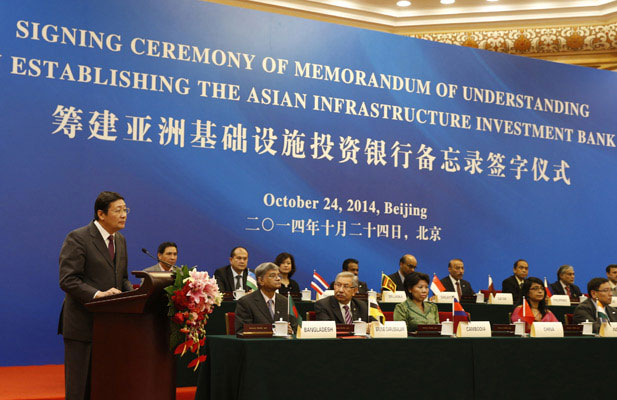by REERA YOO | @reeraboo
editor@charactermedia.com
South Korea announced on Thursday that it will join the Asian Infrastructure Investment Bank (AIIB) as one of its founding members, despite Washington’s opposition to the new multinational lender, reports the New York Times.
South Korea’s finance ministry said in a statement that becoming a member of the AIIB will help bolster the country’s influence in the international banking sector and help domestic firms secure deals in large-scale construction, telecommunications, transportation and other regional infrastructure projects.
Seoul’s decision comes a week after developed European economies France, Germany and Italy announced that they will be joining Britain in seeking membership. Australia is also expected to follow suit. More than 20 countries have said that they plan to become AIIB members.
China has already pledged to foot the bulk of the initial $50 billion needed to get the bank running, with donations from other members expected to increase the overall fund to more than $100 billion.
However, the United States has expressed doubts about the proposed multinational lender, which Washington sees a threat to the Wold Bank. The Obama administration has also raised concerns about the China-led institution meeting the rigorous standards of governance and transparency in enforcing environmental and labor standards.
Critics claim that Washington is simply opposing the AIIB because it is afraid that the new bank will undermine institutions like the International Monetary Fund (IMF) and the World Bank, where the U.S. wields great influence.
The question of joining the bank had also forced South Korea to delicately balance its ties with the U.S, its primary military ally, and China, its largest trading partner.
According to the Yonhap, AIIB participants have agreed that voting rights should commensurate with the amount of donations made, with Asian countries receiving 75 percent of voting rights and the rest going to countries outside of Asia.
___
Featured image by Takaki Yajima/Reuters







